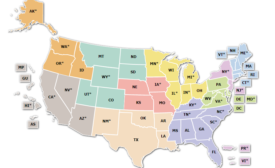Psychology in the Workplace
Creating the right climate for safety
Leaders need to show their competency, and their caring for co-workers
April 18, 2019
Want to learn a new skill? Take some short breaks
NIH study suggests our brains may use short rest periods to strengthen memories
April 16, 2019
Become a Leader in Safety Culture
Build your knowledge with ISHN, covering key safety, health and industrial hygiene news, products, and trends.
JOIN TODAYCopyright ©2025. All Rights Reserved BNP Media.
Design, CMS, Hosting & Web Development :: ePublishing








